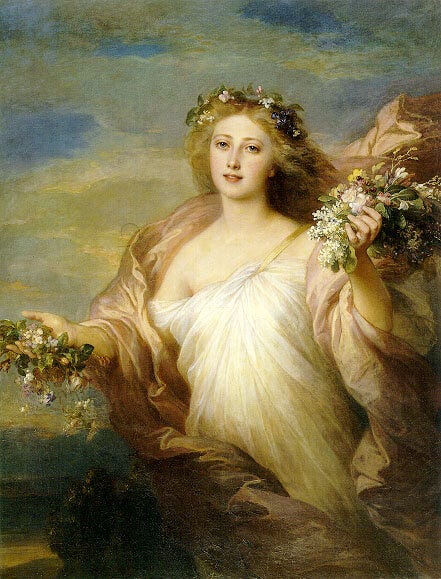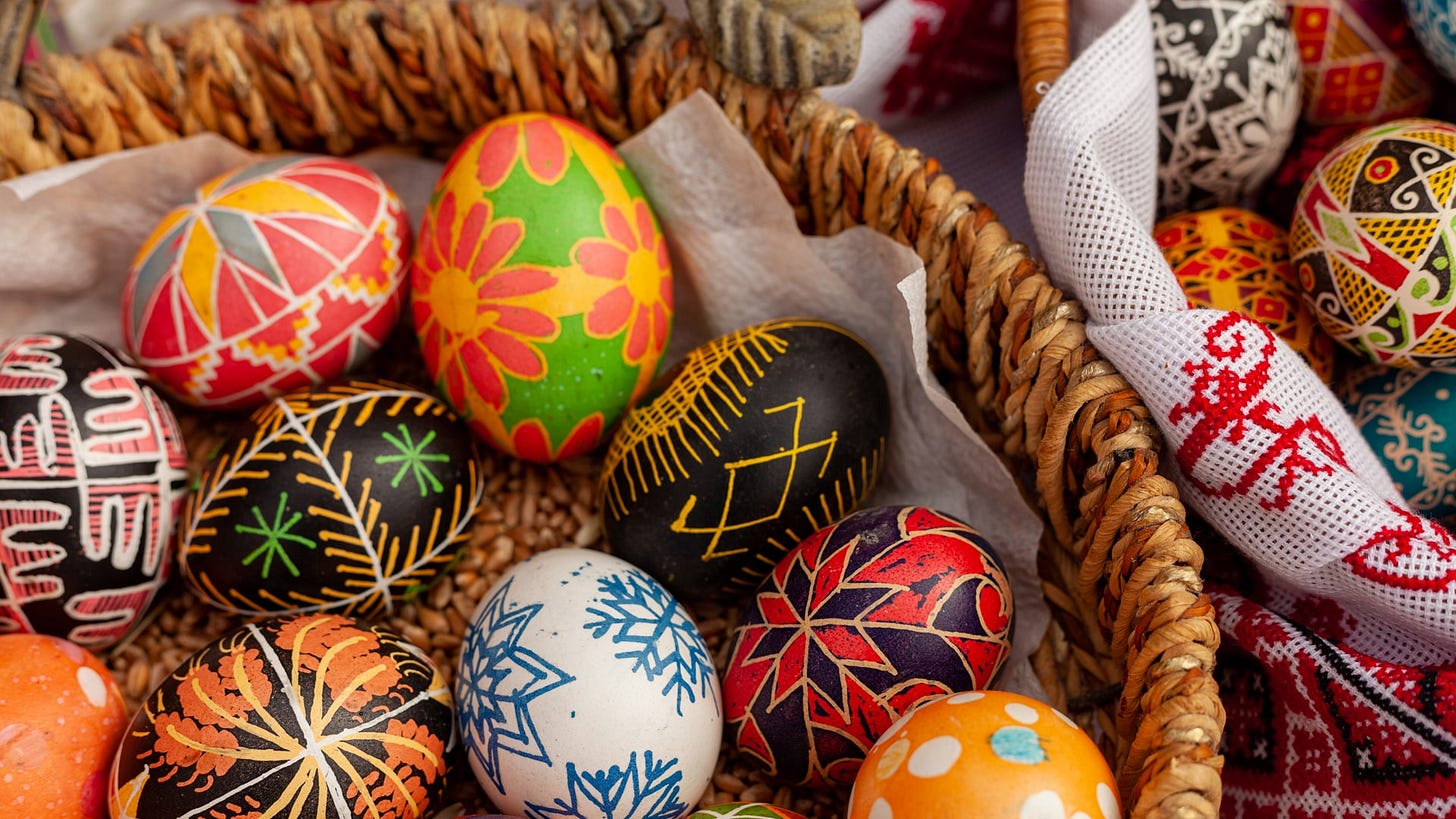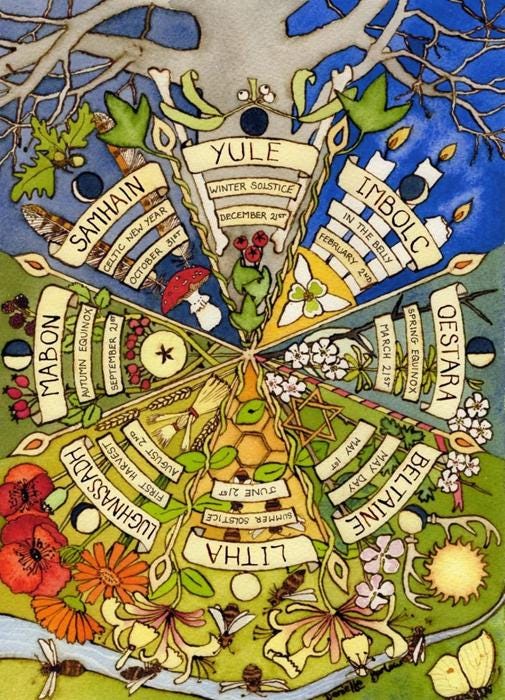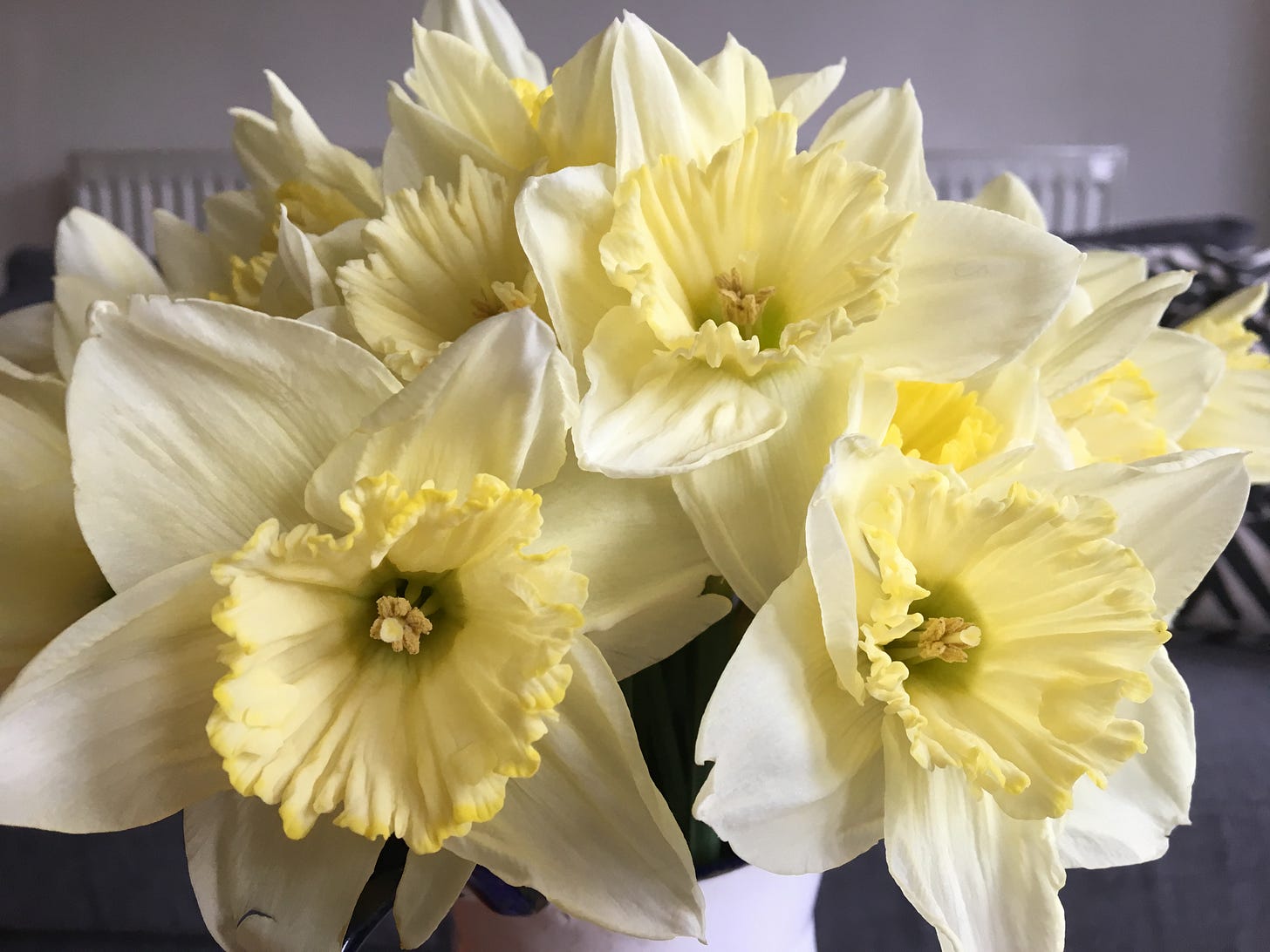The spring equinox (Ostara) is coming
Thank ye gods! Welcoming the return of the light, and why the Celtic wheel of the year helps me to locate myself
My next online circle is on 19 March at 8pm! These circles are available to all paid subscribers and are held every six weeks around the time of a festival from the Celtic wheel of the year. They involve some teaching, journalling time, gentle somatic practices and the opportunity to share in a circle. Find out more, and what others said about the first session, on my website.
About now it’s undeniable, not because of the temperature but due to the change in the light, the birdsong, the spring flowers. Here we are again, spring is springing. Whatever else goes on in these lands of 4 distinct seasons, spring follows winter. The seasons change, the wheel turns, and if you’re reading this then you are here, and able to witness it.
The Spring Equinox is on 21st March this year, just ten days away, known in some quarters as the first day of spring (the meteorological first day of spring is 1 March, fact fans). Equinox comes from the Latin words for “equal night”—aequus meaning equal and nox meaning night. If you want to understand the astronomical explanation, read on: twice a year, the sun appears directly above the equator, rather than north or south of it. The Northern Hemisphere and Southern Hemisphere receive roughly equal amounts of sunlight; neither hemisphere is tilted more toward or away from the Sun than the other. Daytime and nighttime are of approximately equal duration all over the planet.
Eostre
The (Pagan) Germanic goddess of dawn, fertility and rebirth was thought to be called Eostre, or Ostara, the same name for the festival that’s one of eight on the Celtic wheel of the year. Historians disagree on exactly how and where she was honoured (and indeed if she even existed), but it looks likely that a spring-like fertility goddess was worshipped by our prehistoric ancestors.
The celebration and goddess Eostre would have predated the Christian festival of Easter by millennia, but the date of Easter is still calculated based on the Pagan solar calendar, which I love! Easter is always on the Sunday after the first full moon occurring after the Spring Equinox. This year the Spring Equinox is on March 21st, the first full moon after the equinox is on March 25th and the first Sunday after the full moon is 31st March, the date of Easter this year.
Bunnies and eggs
Scholars think that hares were the sacred animal of the goddess Eostre. One story tells how Eostre turned a bird into a hare, which laid eggs in April. Over time this hare became the Easter bunny who brought eggs to children. Rabbits and hares are symbols of fertility due to their ability to procreate! Eggs of course are also symbols of new life and fertility, and this was easily co-opted into Christianity, with the eggshell representing the tomb of Jesus and the cracking of the egg symbolising his resurrection.
Celtic wheel of the year
The wheel itself is a reconstruction, assembled by twentieth century Pagans and drawing on different traditions from different prehistoric peoples across Western Europe. The solar events on the wheel - winter and summer solstice and the equinoxes, the midpoints between them - were celebrated by the Anglo-Saxons, a group descending from Germanic settlers and inhabiting most of what we now call England from around between about 450AD and 1066. The cross-quarter festivals that fall in between the solstices and equinoxes were celebrated by the Insular Celtic peoples, speakers of insular Celtic languages (including Welsh, Irish, Cornish, Brittanic, Pictish in Northern Scotland and Manx on the Isle of Man) in the British Isles from around 80BC to the 10th century.
The history and pre-history (the technical name for history before written records, which only began in 3200 BCE!) is fascinating, and each time I research another festival I fall into a number of internet holes about folk traditions and the scholars who dug into their history and meaning. Whatever the exact truth on the timings, content and geography of these festivals, observing the wheel of the year makes me feel connected to external cycles related to season and land, which takes me out and away from feelings of disconnection, insularity and self-preoccupation.
Location, intention, celebration
This visual reminds me that we’re part of something bigger, we all are, and though I don’t want to romanticise history or pre-history, I sense that our loss of connection to natural cycles and land is at the root of much modern physical and psychological malaise.
I have different copies of the wheel up on the walls of my home, and being able to locate myself at a point on the cycle helps me view myself as a cyclical being, to whom cyclical truths also apply. Whether it’s the duration of festival or in-between, the lead-up and the aftermath, I know where I am. Imbolc, the first whisper of spring, was on 1st Feb, and the spring equinox is coming, and the spring flowers are coming out and light and warmth is returning and the earth is waking up.
If I can take some time to mark these festivals via the rituals associated with them, I feel much more rooted in place and time. This doesn’t have to be elaborate, but if I miss out on any observations at all I feel a bit disappointed and adrift. It’s also good for the part of me that’s absorbed stories from capitalism about productivity. These activities are generally anti-consumerist (or very inexpensive) and “unproductive”, but they teach me something about just being.
At this point in the year, little ways to locate myself on the Wheel might include:
buy daffodils for my kitchen table
get out in the garden and clear a bit of the winter debris away
spring clean a drawer or cupboard if not the whole house!
get outside for walks and to see the spring flowers, especially on blue-skied days
do some Easter-themed baking (hello mini-egg brownie)
- as well as chocolate egg hunting for the kids on Easter Day, and a lunch with my family. I’d love to hear about how you feel about this time of the year, and what you like to do to celebrate. I would love you to join me as part of these online circles - just message me or comment below if you have any questions.









Have learned loads from this article, thank you! Really looking forward to our circle tomorrow evening x